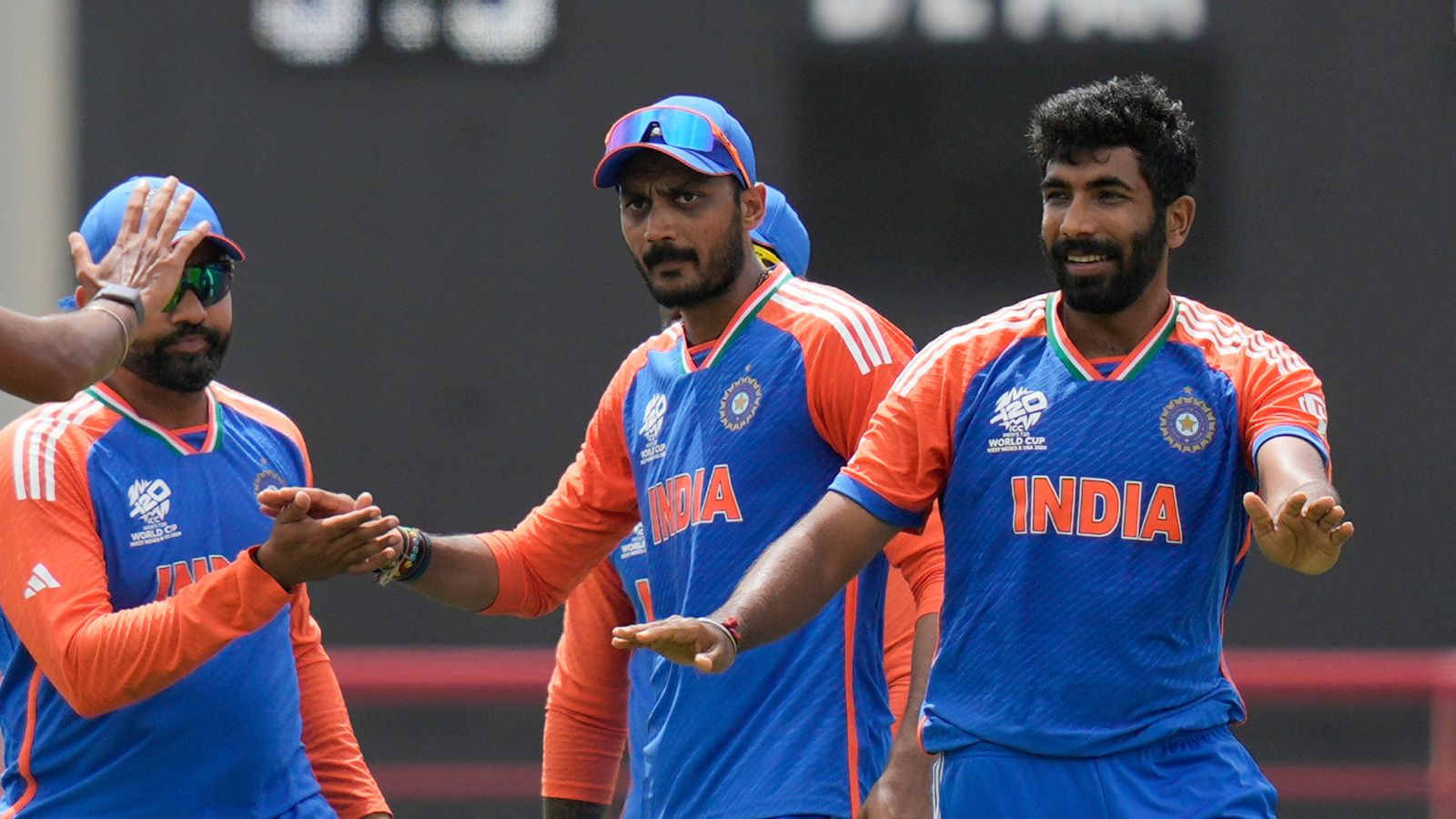Cricket
T20 World Cup: Bumrah’s big wicket of Head, Axar’s all-round brilliance, Kuldeep’s spin – how India broke Australia’s chase

A broad smile spread over Jasprit Bumrah’s face when his teammates gathered around him after India scored a 24-run win over Australia and push them to the brink of elimination. It’s an unusual spot of bother for Australia — wait and watch the Afghanistan-Bangladesh game with sweaty fingers, and pray the latter defeat the Rashid Khan-led history makers (but not too heavily). This seemed the destiny once Rohit Sharma reeled out an otherworldly 92 off 41 balls to set up a target of 206.
Bumrah was not the only star performer among India’s bowlers — Axar Patel, Kuldeep Yadav and Arshdeep Singh all put in spirited shifts — but as is often the case Bumrah stole the thunder.
Bumrah delivers
In several junctures of the game, hope teased and trickled the champions of 2021, but they couldn’t defy the inevitability that was Bumrah. He blew out Australia’s burning flicker of hope when he dismissed Travis Head, a familiar thorn in India’s flesh, with a slow off-cutter. Two sharp balls at 140 clicks and then the clincher in mid-120 kph. Match point. Australia withered from 150 for 5 in 16.3 overs after Head’s 43-ball 76.
Until that moment, India’s supporters might have felt nervous. Head had scored hundreds in the World Test Championship and World Cup finals. He seemed to consign India a similar ordeal with his lively strokeplay. He took on a new-ball armed Bumrah no less, thudding three fours in the space of four balls, launching a snappy counterattack. He slashed and slapped over point, manufacturing room and staying leg-side; he unfurled a brutal pull. He carted Hardik Pandya for a pair of sixes, and Australia stormed to 65 runs in their powerplay. He tucked into Hardik, caning him for four fours and a six. The fourth boundary rung in his half-century, off only 24 balls.
As long as he stayed, India breathed uneasily. He didn’t relent even against Kuldeep, whose wiles had kept most other batsmen guarded. Head shoved him over long-off on one knee, before picking up a four apiece of Kuldeep and Axar. A barren spell of six balls without a four, he too lost his composure and wicket. This was in with the game’s flow.

Whenever Australia looked to grab the match by the collars, India struck. Glenn Maxwell looked determined to avoid the late-game blushes against Afghanistan. He reverse-swept Ravindra Jadeja for a maximum, sandwiched between two boundaries. He and Head had crunched 41 runs in no time before overzealousness undid him. Kuldeep was India’s best bowler on the day, and eschewing over-the-top aggression was the wise path. But he threw caution to the wind, shimmied down the track and missed the ball that spun away. It was a delicious ball, curving, dipping and turning, but Maxwell could have somehow played it safely. The equation, at that time, was 78 off 42 balls, achievable by modern-day standards.

Axar’s heroics
Australia slumped further when Marcus Stoinis reverse-swept aerially to Hardik at backward point. It was a fitting reward for Axar’s thrift, his previous over had cost just three, this one six. This was gold dust in the game’s context. The left-arm spinner was in an inspired mood. A brief while along, he had plucked a worldie catch off Mitchell Marsh to break the 81-run rescue mission by the Australian captain and Head after Arshdeep Singh had ejected David Warner with the last ball of the first over. Marsh had struck the ball sweetly, a full-throttle pull sweep that took a flat trajectory and seemed to clear the ropes. But Axar leapt elastically and grabbed the ball with his right hand on the edge of the boundary. A wave of disbelief flickered across the face of Marsh, whose 37 off 28 was laced with belligerent swipes. But the partnership ensured that Australia remained in the match and the tournament.
The chase, though, could have been more daunting had not Mitchell Starc, after a new-ball chastening, returned to consume his tormenter Rohit. None of the other middle-order batsmen could reproduce the captain’s braggadocio. Starc produced another wicket—Suryakumar Yadav top-edging a wide ball to the wicket-keeper—that kept the brakes on the scoring. Stoinis removed Shivam Dube before he clanked into the fifth gear and it took a few lusty blows from Hardik to steer India past 200.
From 127 for 2 in 11.1 overs to restrict India to 206 was a mini comeback of sorts on a placid surface, devoid of sluggishness, after Marsh chose to bowl first, as most teams on the ropes would do. His only consolation was the parsimony of Josh Hazlewood, whose four overs cost only 14 runs, besides the precious wicket of Virat Kohli. But his colleagues blinked during the onslaught of Rohit, and later did not have the firepower to repel the brilliance of Bumrah and Co.


)






